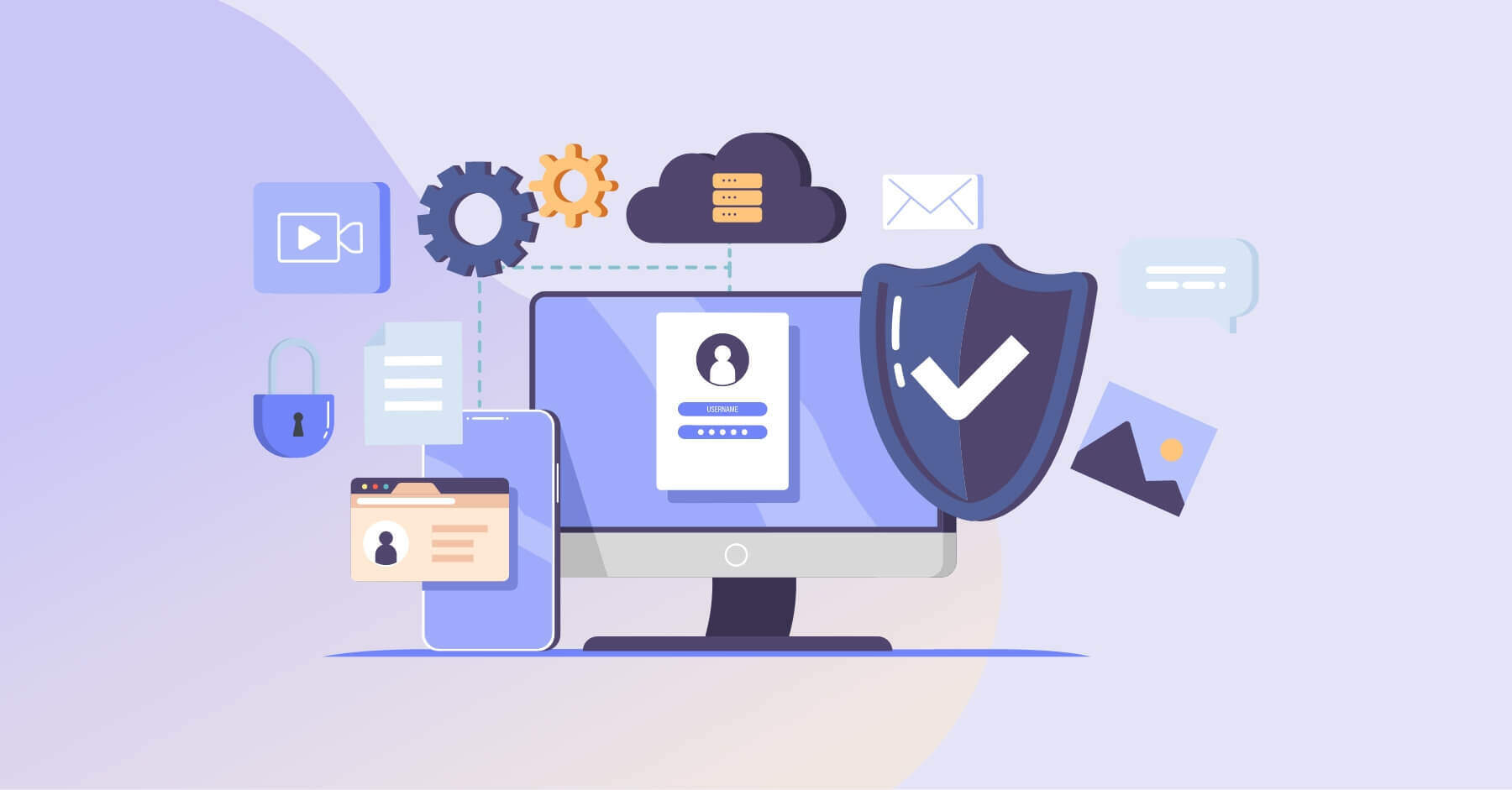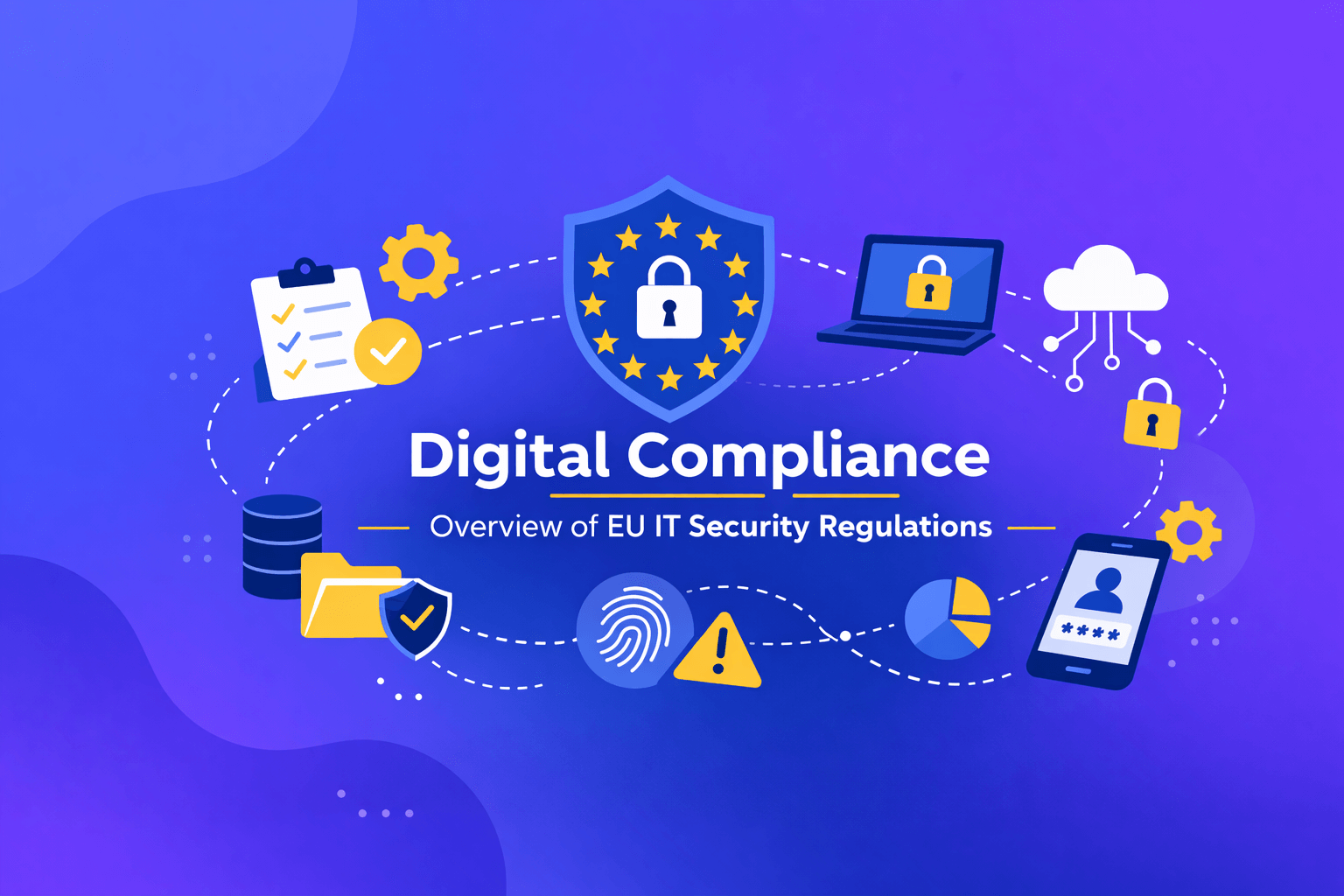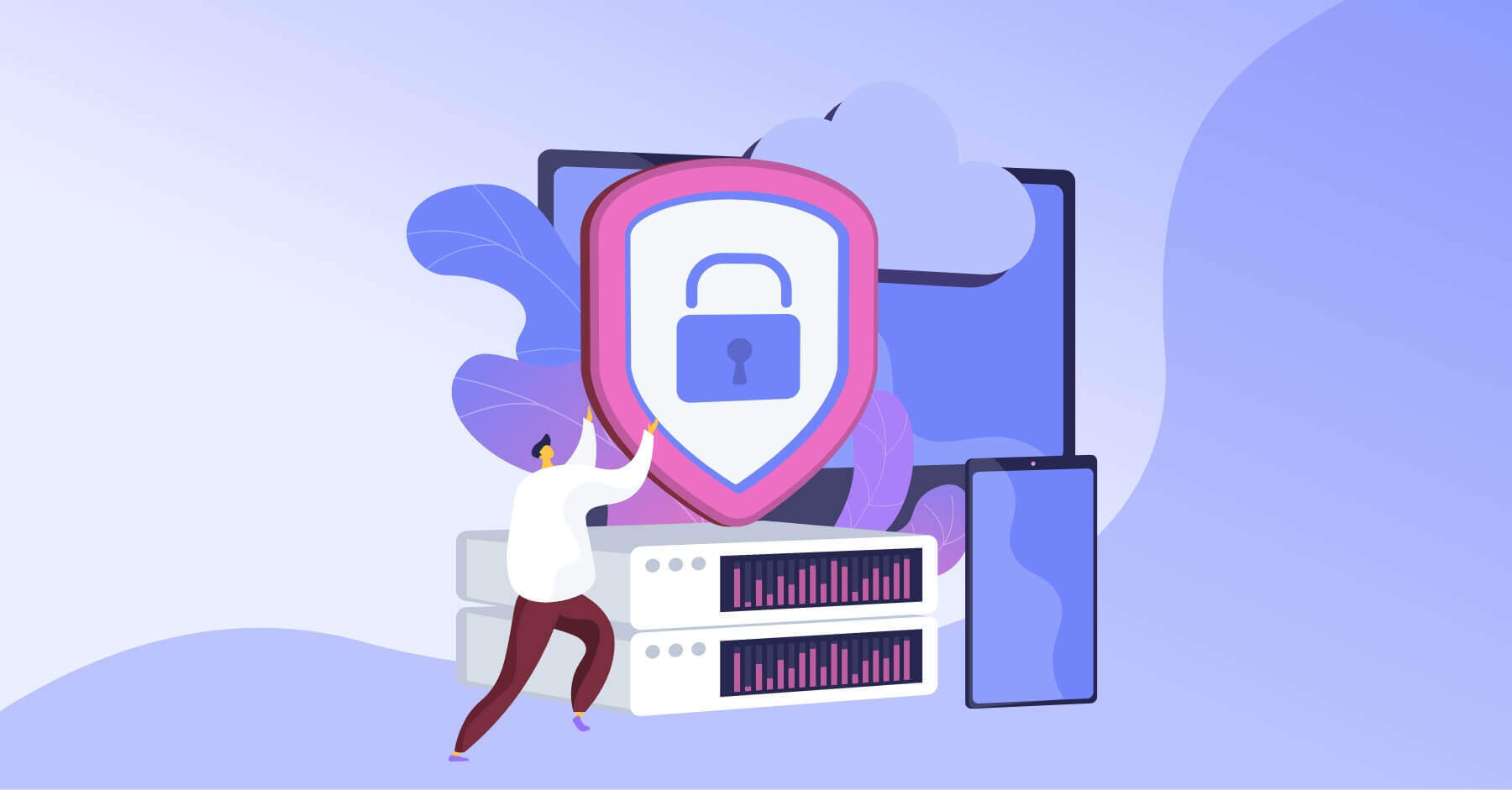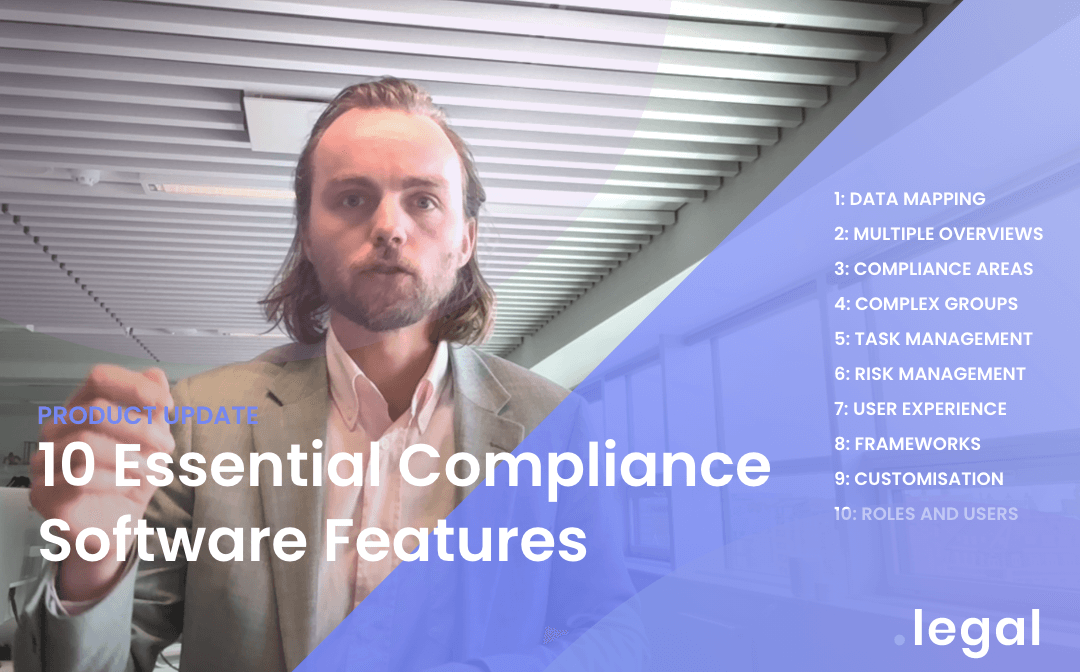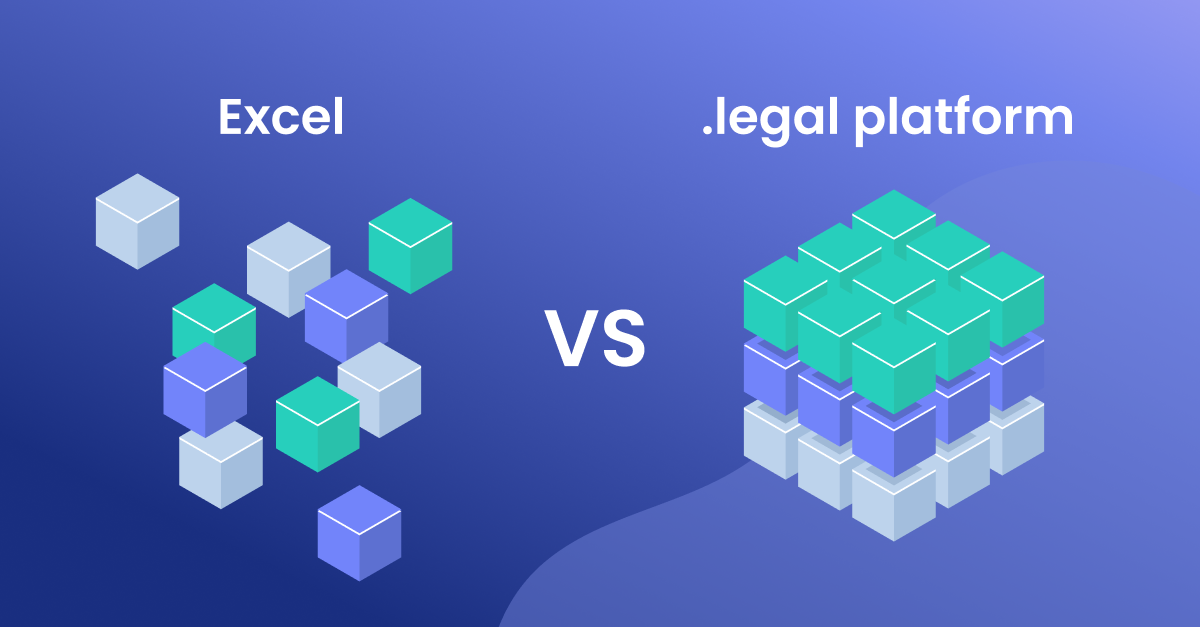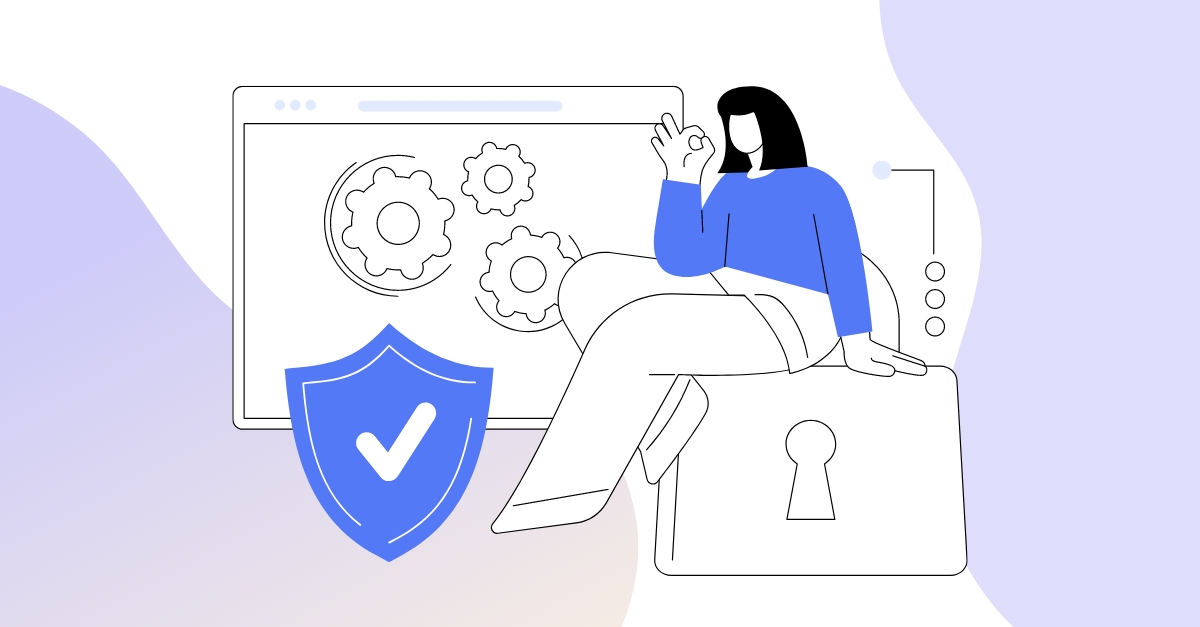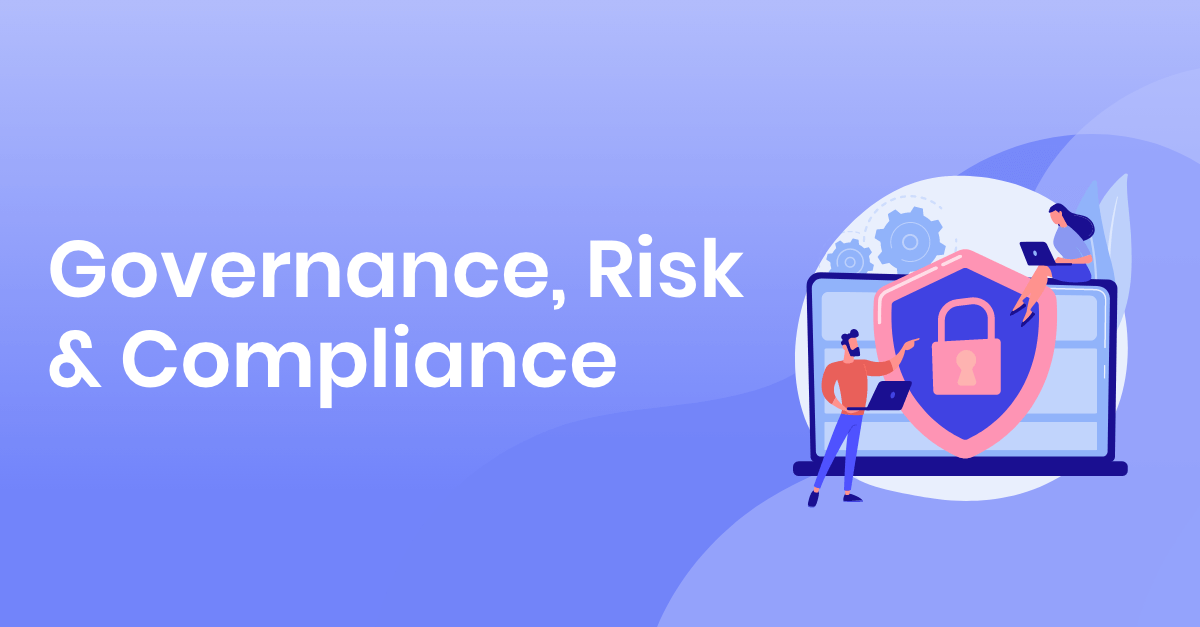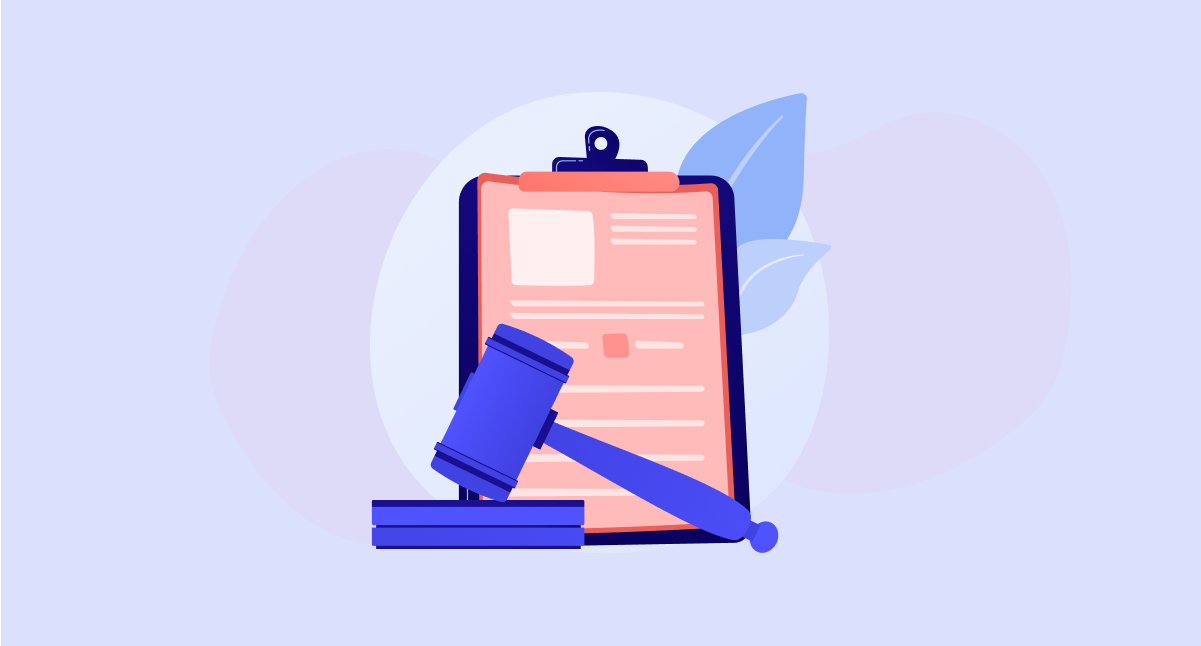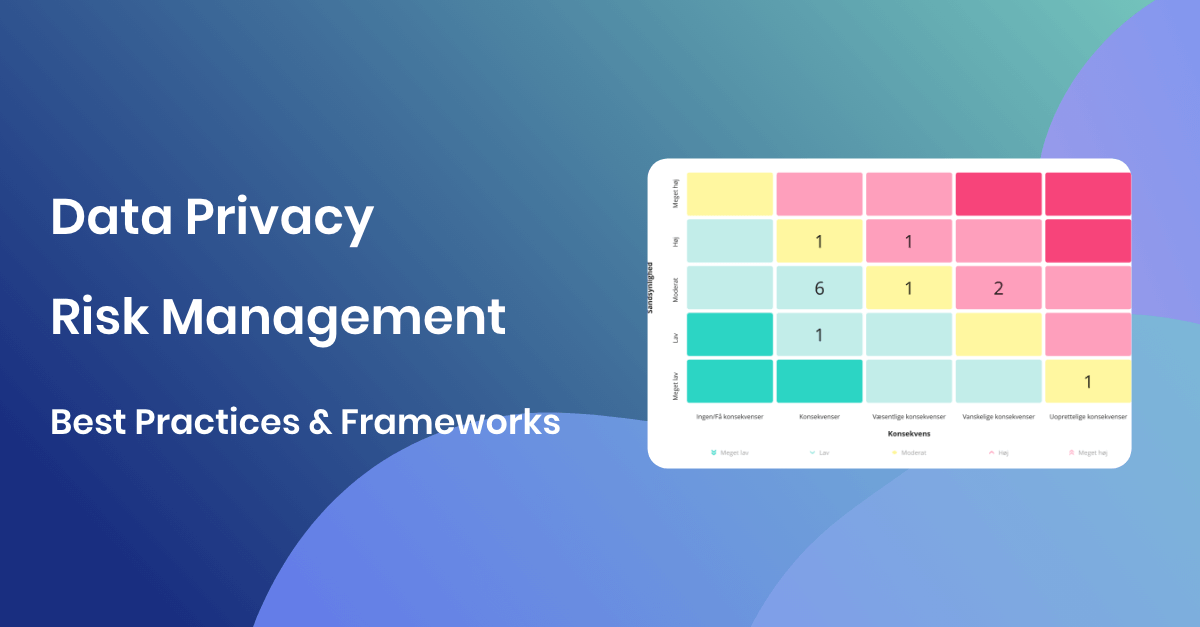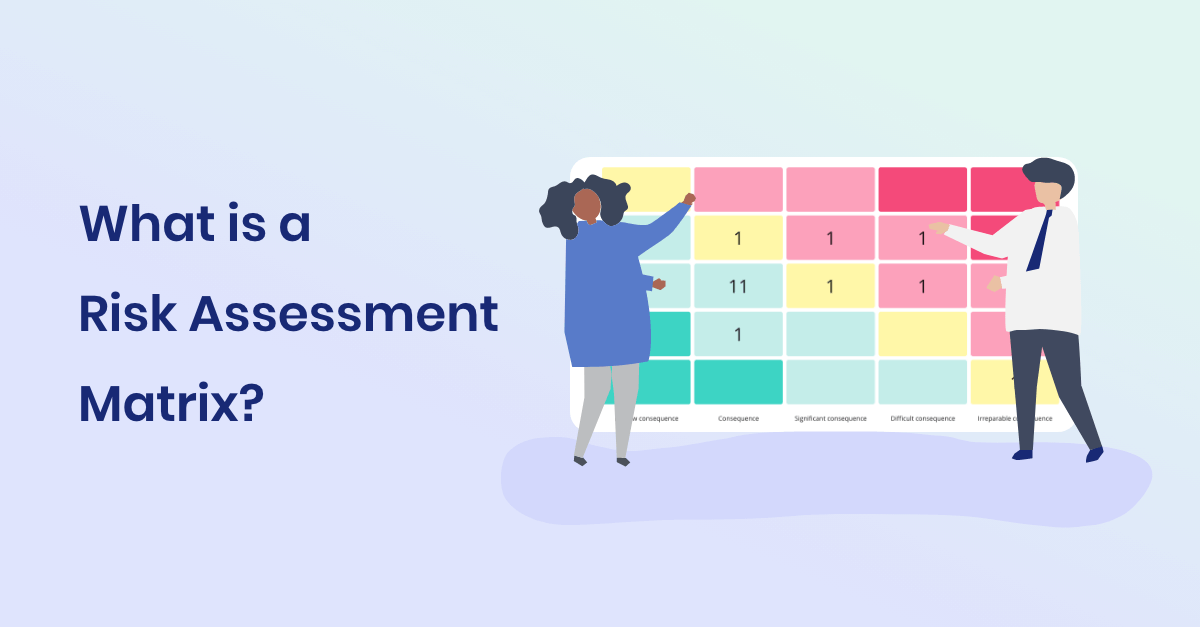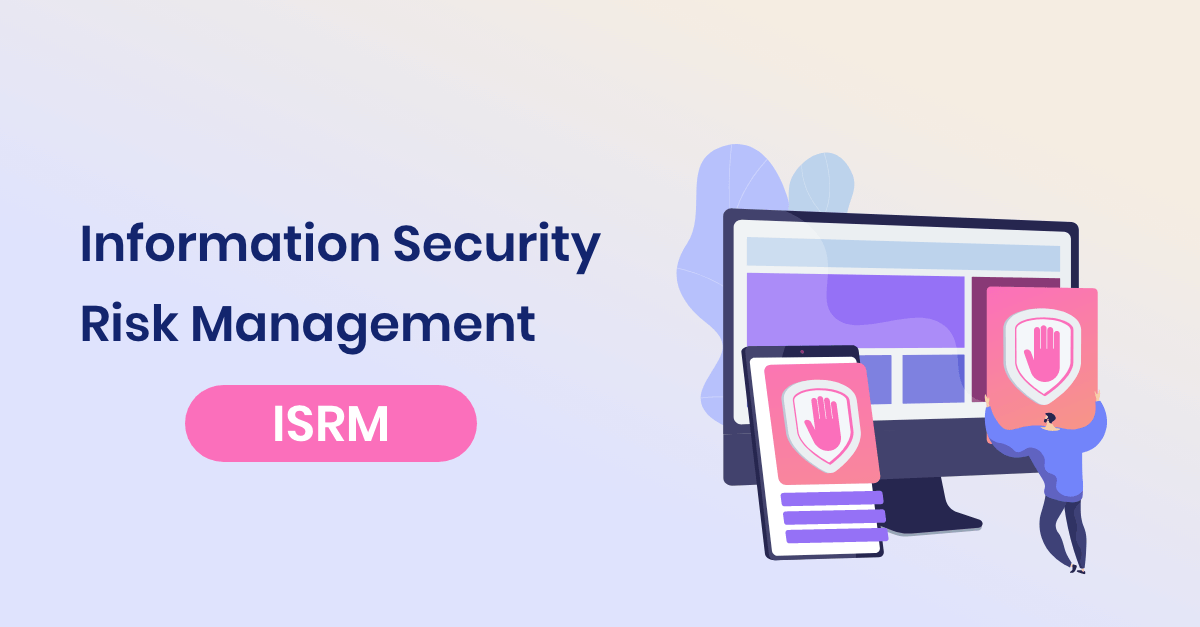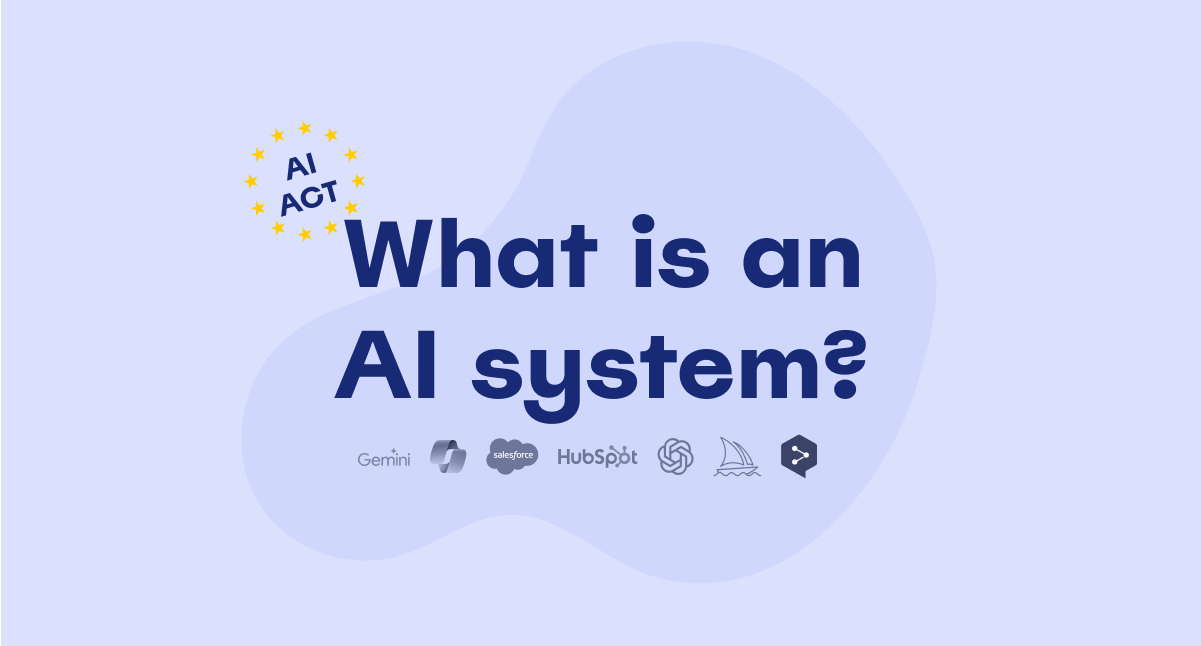- Articles
- Compliance
- Do You Really Need GDPR Compliance Software?
Table of Contents
When Does GDPR Software Make Sense for Your Business?
The GDPR can be a big challenge for your company with its extensive rules and stringent requirements, and making sure that your company comply with the GDPR can feel overwhelming.
While some companies rely on consultants or in-house training, an often-overlooked tool in this effort is dedicated GDPR compliance software.
This article will explore how GDPR compliance software can streamline your compliance process and help you determine whether it's a necessary investment for your organisation.
GDPR Compliance
The concept of GDPR compliance might be vague to some, but it essentially means following the GDPR rules. Therefore, GDPR compliance is all your organisation's efforts to follow these rules.
The GDPR rules are two-sided: You must implement the recommended practices within your organisation and document that you have done this.
We recommend that you read the following article: What is GDPR compliance? - to better understand the GDPR's specific compliance requirements.
How Does Software Help?
GDPR compliance software will facilitate the documentation of your current data protection practices and enable you to identify areas for improvement.
While all compliance software will help you document your compliance, many of these solutions also offer guidance on what you must do in practice within your organisation to become compliant. This is valuable because it handles much of the complexity you would otherwise need experts for.

Based on the gaps in your current data protection practices, the compliance software will suggest how to overcome these and comply with GDPR requirements.
In this article, you can read more about the features you should look for in GDPR compliance software.
Who Needs GDPR Compliance Software?
You can manage your GDPR compliance however you decide, but it’s essential to manage it somehow and document your efforts.
The requirement for GDPR compliance software often varies by sector due to the differing nature of personal data processing.
For instance, the healthcare sector handles sensitive patient records, financial services deal with confidential financial details, and educational institutions manage information about children. Similarly, e-commerce platforms process large volumes of customer data daily.
These sectors will likely benefit from dedicated GDPR compliance software to streamline their processes and ensure compliance.
On the other hand, industries that handle less sensitive data may find such software less critical.
Nevertheless, the size and complexity of your organisation, along with specific operational needs, can also influence the necessity for GDPR compliance tools, irrespective of the sensitivity of the data.
Small businesses and Startups
Smaller businesses often face financial constraints and limited expertise in data protection, making GDPR compliance a challenging task.
If you work in a small business, you might prefer cost-effective, easy-to-implement, and intuitive software. In this case, software with built-in guidance and guardrails could be a practical solution for achieving GDPR compliance.
When working with a tight budget, it might be necessary to prioritise affordability over extensive features. To compensate for the reduced functionality, you could rely on Excel spreadsheets, organised folders on a shared drive, existing task management software, or other tools tailored to your specific needs.
However, this approach could increase your workload, as managing GDPR compliance without dedicated software introduces added complexity, posing risks to overall compliance.
To effectively manage GDPR requirements, you would benefit from a solution that offers essential functionalities, such as data mapping and maintaining records of processing activities, which is mandatory for all companies.

It would be advantageous for you to find GDPR software that offers templates and best practices. This can give you a head start and help you overcome the challenges of starting from scratch. Many GDPR processes and tasks are similar, making it possible to provide a set of templates that can be useful for your documentation needs.
Collaboration features are generally unnecessary at this level of organisational complexity, as GDPR compliance responsibilities typically fall to a single individual.
If you work at a startup, your needs would be similar to those of a small business. However, since startups often focus on rapid growth, you would benefit from choosing scalable software that can expand its functionalities as your company grows, allowing you to avoid the hassle of switching platforms later.
Medium-sized businesses
If you work in a medium-sized business, you'll likely encounter increased complexity in your organisation's workflows, which adds complexity to your GDPR compliance efforts.
Given the size of your company, you’ll probably have a team working on GDPR compliance rather than managing it alone. Therefore, your GDPR software should offer multi-user and task management capabilities to facilitate collaboration. These features enable you to coordinate with team members, share responsibilities, and efficiently navigate the complexities of GDPR compliance.

Additionally, reporting and auditing features could be valuable for improving internal communication with colleagues and management, ensuring everyone stays informed about compliance status.
In a medium-sized business, you’ll likely prioritise user-friendly software that doesn't require extensive customisation. This way, you can focus on compliance rather than spending time configuring overly complex systems.
See how .legal compliance platform supports team collaboration
Enterprise
Large enterprises often have multiple offices or facilities across various locations within group companies and internationally. The GDPR requires each legal entity within a group to comply with its regulations, which increases the complexity of the compliance process.
If your organisation operates in several countries, you will also need to comply with the national jurisdictions of each location, further complicating compliance efforts.

To manage this complexity, your enterprise would benefit from using advanced software that can accommodate the specific needs of group companies and support multiple instances of records of processing activities. Centralising compliance management within one platform would streamline the process and ensure that all entities within the organisation remain aligned with GDPR requirements.
GDPR software designed for group structures can save time by allowing documentation to be created at the group level or for specific companies within the group. With the right software, you can document once and still generate individual outputs for each group company, simplifying the process.
Use the .legal group companies feature to manage complex structures
Public sector organisations
Though varied in size, public sector organisations often resemble large enterprises in that they have subdivisions spread across multiple locations.
If you work in the public sector, you must maintain high standards for secure software usage to comply with strict accountability and transparency laws. Implementing features like single sign-on (SSO) and logging user actions within the software will be needed to ensure both accountability and transparency.

These features are critical because public sector organisations must demonstrate more transparency in their operations than private businesses. Additionally, robust reporting functionalities would be highly valuable for GDPR compliance managers in this environment, helping to meet the sector’s stringent compliance demands.
In the public sector, standard systems are often a key part of the IT infrastructure. The GDPR software used for compliance should integrate seamlessly into this environment, working effectively with the existing portfolio where necessary. It is advantageous if the software allows you to create references or deep links to other systems, such as a file share, or to integrate smoothly with standard systems in your organisation, like a maintained list of counterparts.
Benefits of GDPR Compliance Software
Let's get specific about how GDPR compliance software can benefit an organisation compared to not having a dedicated tool. Below, we explore several scenarios highlighting the differences in compliance management with or without GDPR software.
Scenario: Collaborative GDPR Documentation
Without a Platform
Updates can become overwhelming in an organisation without a GDPR platform, making it difficult for the compliance officer to track all changes and maintain accurate documentation; documents are scattered, updates fall behind, and non-compliance risk increases.
With a Platform
GDPR software transforms documentation into a collaborative process, offering real-time updates and alerts to ensure everyone stays aligned. This approach makes compliance a shared responsibility, reducing the burden on a single individual and mitigating non-compliance risks.
Scenario: Conducting Risk Assessments
Without a Platform
Risk assessments and thoroughly documenting risks can be cumbersome and inefficient without a structured tool, leaving the organisation exposed to undetected threats.
With a Platform
A GDPR platform provides a structured approach to risk assessments, offering guided steps from identifying risks to resolving them. Supported by a resource library, the software ensures that assessments are thorough and informed.
Scenario: Responding to Data Breaches
Without a Platform
Things get chaotic after a data breach. It's hard to determine how bad the breach is and how it impacts the data subject and your organisation. Reporting it on time is also challenging because of GDPR’s strict reporting deadlines.
With a Platform
With a GDPR platform, you can maintain a centralised data breach incident log. The software connects the incident log to your data processing records and system logs. This setup allows for a swift, efficient response, ensuring timely reporting and reducing potential legal and reputational damage.
Scenario: Adapting to Legal Updates
Without a Platform
Staying on top of legislative changes requires significant time and effort. This requires hours of research and staying in the loop to stay compliant with changes.
With a Platform
GDPR software acts as a legal watchdog, alerting users to relevant legislative changes and indicating where adjustments are necessary. Thus, it helps the organisation effortlessly maintain compliance with new laws.
Scenario: Ongoing Documentation Management
Without a Platform
Keeping your documentation updated is a manual, calendar-driven process with plenty of room for errors. Reminders scattered across different systems can result in unclear accountability and missed deadlines.
With a Platform
The software automates the delegation and scheduling of compliance tasks, sending timely notifications to ensure that documents are reviewed and updated regularly. This proactive approach keeps GDPR documentation in a constant state of readiness, which takes worries away and allows you to focus on other tasks.
Scenario: Audit Preparedness
Without a Platform
Audits are stressful and time-consuming, and especially when documents are scattered across multiple sources. Without a compliance platform, you increase the likelihood of missing or using outdated information.
With a Platform
A GDPR platform consolidates all compliance documentation in one place, streamlines record-keeping and simplifies the audit process. When you have your documentation in order like this, you facilitate smoother internal reviews and builds confidence for successful external audits.

The Strategic Advantage of GDPR Compliance Software
GDPR compliance software simplifies staying compliant with data protection regulations by automating essential tasks and reducing compliance risks. This eliminates the need for your company to develop its own processes. With a professional provider maintaining the software, you can be confident that it remains up-to-date with the latest regulatory changes.
Centralising all compliance activities through your software makes documentation more accessible and manageable, reducing redundancy and the likelihood of errors. It also provides audit trails to verify any changes, adding transparency and accountability to your work.
Adopting this software allows staff to focus on more critical tasks rather than spending time managing documentation in spreadsheets. Additionally, it simplifies the handover of compliance responsibilities within the company, as everything is systematically organised in one location.
How to Select the Right GDPR Software for Your Organisation
Before investing in GDPR compliance software, you should evaluate the reliability and reputation of the provider.
Start by reading reviews and testimonials to learn about customer satisfaction. Look at both positive and negative feedback to get a balanced view. Additionally, check the company’s history and activity on platforms like LinkedIn and attend any available webinars to ask direct questions.
Pay attention to the provider's data storage practices, particularly if your organisation needs to store data within the EU. Make sure their storage locations meet your requirements, as GDPR compliance can become more complicated if data is processed outside the EU.
Another key factor is how the provider updates the software with changing legislation. Do they use external auditors to confirm their software remains compliant? Also, consider the quality of their customer support and the availability of detailed documentation, as these can greatly influence your experience with the software.
Finally, ensure that the software fits your organisation's specific needs and provides a clear return on investment. Conduct a cost-benefit analysis to confirm it's worth the expense. If possible, take advantage of a trial period to see if the software meets your expectations before fully committing.
If you decide to start using compliance software, you could be interested in our article: A Guide to Buying Compliance Software
Summary
GDPR compliance software simplifies the complexities of data protection regulations, especially for organisations with sensitive information or complex workflows.
While smaller businesses may manage without dedicated software, larger enterprises and public sector entities stand to gain considerable benefits from these platforms, including streamlined processes, reduced risk, and greater compliance efficiency.
Ultimately, the decision to invest in GDPR compliance software should be guided by your organisation's specific needs, resources, and the potential for long-term regulatory compliance.
Frequently Asked Questions About GDPR Software
Is GDPR compliance software necessary for every organization?
While not legally mandated, GDPR compliance software is highly recommended for any organization processing personal data of EU residents. The complexity of GDPR requirements makes manual compliance extremely difficult and error-prone, especially as organizations grow and data processing activities increase.
Can you achieve GDPR compliance without dedicated software?
Technically yes, but it is increasingly impractical. Small organizations with minimal data processing might manage with spreadsheets and manual processes, but this approach does not scale, is prone to human error, lacks audit trails, and makes it difficult to demonstrate compliance to regulators.
What are the risks of managing GDPR compliance manually?
Manual compliance management risks include missed deadlines for data subject requests, incomplete records of processing activities, inadequate breach notification responses, lack of audit trails, inconsistent policy enforcement, and difficulty keeping up with regulatory changes. These gaps increase the risk of fines.
At what point should an organization invest in compliance software?
Organizations should consider compliance software when they process personal data regularly, handle sensitive data categories, have multiple data processors, operate across jurisdictions, receive data subject requests, or when manual compliance processes consume significant staff time and resources.
What are the benefits of GDPR compliance software over spreadsheets?
Compliance software offers automation, real-time monitoring, built-in workflows, audit trails, automated reminders, integration with business systems, standardized processes, multi-user collaboration, reporting dashboards, and regulatory update tracking that spreadsheets simply cannot provide.
How does GDPR compliance software save time?
It automates repetitive tasks like data mapping, consent tracking, DSAR fulfillment, and report generation. Organizations typically save hundreds of hours annually by replacing manual processes with automated workflows, allowing compliance teams to focus on strategic privacy initiatives.
Is GDPR compliance software worth the investment for small businesses?
Yes, for most small businesses the investment pays for itself through reduced risk of fines, time savings, and peace of mind. Many platforms offer affordable plans designed for smaller organizations, and the cost is minimal compared to potential GDPR fines of up to 20 million euros.
What happens if you do not use compliance software and face an audit?
Without compliance software, organizations often struggle to produce required documentation quickly, demonstrate systematic compliance practices, or provide complete audit trails. This can lead to extended investigations, negative findings, remediation orders, and potentially higher fines from supervisory authorities.
Can GDPR compliance software help with other regulations too?
Yes, many GDPR compliance platforms also support other regulations like CCPA, LGPD, ISO 27001, and industry-specific standards. This multi-regulation capability makes the software even more valuable as organizations face expanding compliance obligations across different jurisdictions.
How do you justify the cost of GDPR compliance software to management?
Present the business case by comparing software costs against potential fines (up to 4% of global revenue), quantifying time saved on manual processes, highlighting reduced legal consulting costs, demonstrating risk reduction, and showing how systematic compliance builds customer trust and competitive advantage.
Make an Informed Compliance Decision
Read more about how organizations like yours are approaching GDPR compliance and the tools that make it manageable.
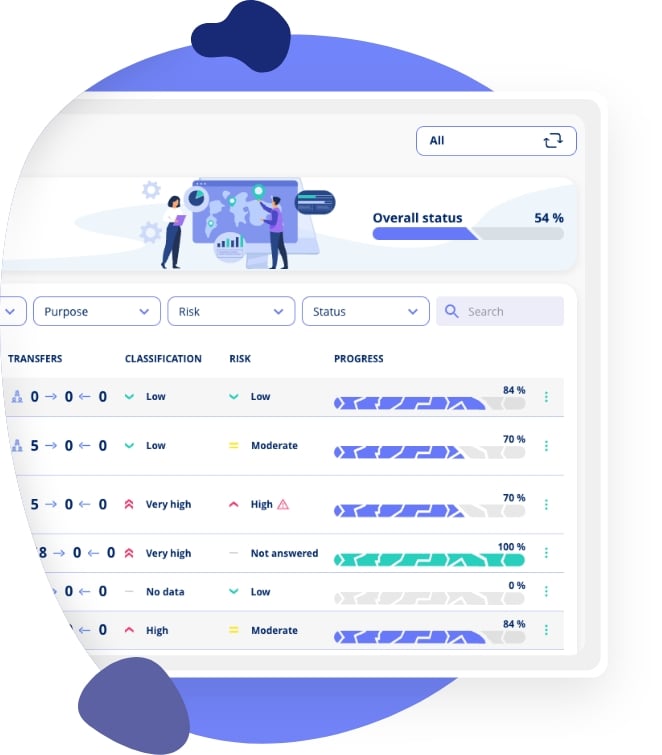




.jpeg)

.jpg)
.jpg)



.jpg)

-1.png)



.jpeg)








.jpg)





Info
.legal A/S
hello@dotlegal.com
+45 7027 0127
VAT-no: DK40888888
Support
support@dotlegal.com
+45 7027 0127
Need help?
Let me help you get started

+45 7027 0127 and I'll get you started
.legal is not a law firm and is therefore not under the supervision of the Bar Council.




